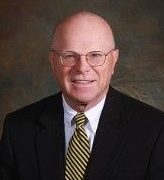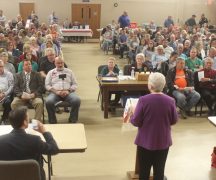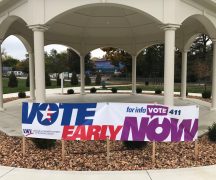By JAN LARSON McLAUGHLIN
BG Independent News
Four candidates are running for two openings on the Bowling Green Board of Education. The election has emphasized the division in the community on issues such as school facilities, finances and the handling of COVID-19.
Running as incumbents are Norm Geer and Ryan Myers. Running as newcomers are Jessica Swaisgood and Peggy Thompson.
Following are the backgrounds of each candidate and explanations of where they stand on several issues.
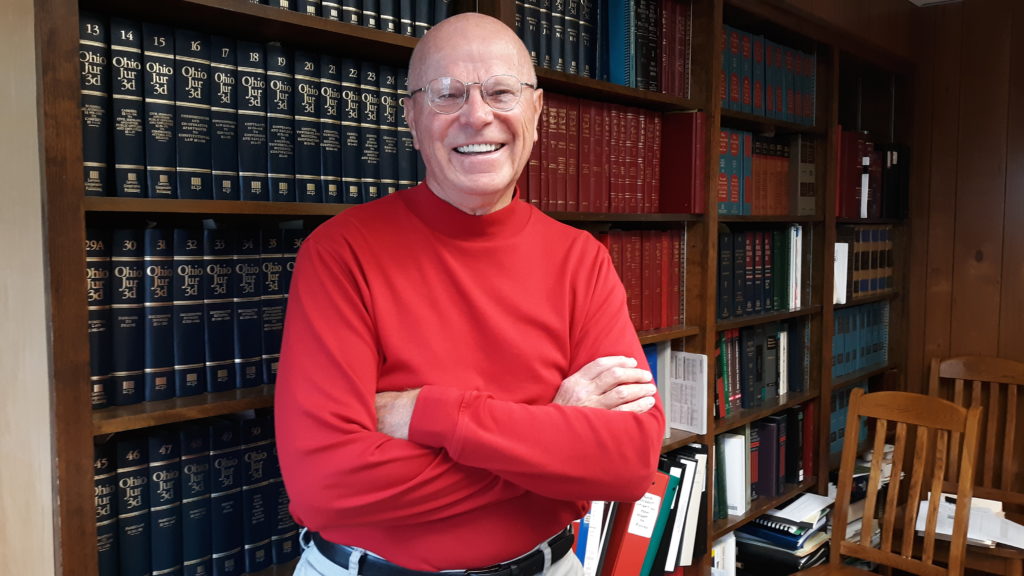
Norm Geer, the current school board president, has spent his life in Bowling Green and graduated from BGHS. He is an attorney, and his wife taught at the middle school for 32 years.
The most frequent question posed to Geer lately is why would he put himself through running for another term on the school board – arguably one of the most difficult local elected positions.
“This is really important work. I am committed to it,” he said.
The school board’s role is to ensure that each child receives a quality education.
“That’s the star we have to follow,” Geer said.
“When the school system is good, then everybody profits from it.”
School facilities
Geer would like to see if voters would support a new high school.
“That should be our flagship,” he said. “It needs to be drastically improved or replaced. I think people in Bowling Green would like a new high school.”
As for solutions for the district’s aging elementary buildings, Geer initially favored the concept of one elementary school to even out class sizes and provide more equity in resources.
However, he supports the current visioning effort underway to find out what voters want.
“I would like to see an elementary solution that gets the support of two-thirds of the people,” Geer said.
“We represent the interests of the students and education,” he said.
Turf battle
Geer defended the board’s decision earlier this year to spend close to $800,000 to install turf on the football field.
“It was an opportunity to do something for the students,” he said, noting that other sports like soccer and lacrosse also use the turf. “It gets a lot of use.”
Pipeline tax revenue was used to pay for the turf – a project that the athletic boosters had been working on for years, he said.
Geer stressed that the turf was not considered a priority over air conditioning in the three school buildings that still have no cooling systems. However, the pipeline funds were available, and the ESSER (Elementary and Secondary School Emergency Relief) funds for the air conditioning had not yet been approved at that point.
Financial consultant
Geer supported the rehiring of David Conley as a financial consultant for the district at an annual rate of $50,000.
“We know how good he is,” Geer said, pointing out that Conley’s skill at refinancing the district’s bond package saved the taxpayers $1 million.
Conley has also walked the board through the process of turning its time-limited levies into continuing issues, so the district does not have to leave so much money unused in reserves.
“David is a proven professional, who is at the top of his game,” he said. “I think we will get our money’s worth out of him, and then some.”
Classes during COVID
Geer agonized over the decision of how to educate students during the pandemic.
“It was a problem for learning because that’s the way especially younger kids learn – face to face with a teacher,” he said.
At the same time, Geer didn’t want schools to be the source of superspreader events.
“I felt the responsibility to keep the community safe.”
Most of the district’s buildings have poor ventilation and few options for spacing out students.
“It was really hard,” he said. “The year was very difficult for everyone – kids, parents and teachers. The priority was to keep them safe.”
Geer said masks are just one of the tools – along with frequent cleaning and spacing – currently used by the district to keep kids in school.
According to CDC guidelines, if a masked student is exposed to someone else at school who tests positive for COVID, the masked student does not need to be quarantined.
“Nobody likes the masks,” Geer said. But, “the masks will keep us in school.”
Teaching of race and racism
Geer believes that history sometimes involves uncomfortable topics.
“History is something that should be taught factually” – not just from the perspective of those in charge.
“Let the students develop critical thinking skills,” he said. “Slavery is uncomfortable.”
Geer, a history major, said Bowling Green City School District follows the state curriculum. The district doesn’t tell students what to think – “our mission is to educate them on how to think,” he said.
“I believe in history,” he said, noting the adage that history is written by the victors. “Those who ignore the lessons of history are destined to repeat them,” he said.
New goals
Geer supports the creation of a city-wide early childhood education program, involving children in private, church, public and BGSU preschools.
“So when they get to the first day of kindergarten they can all do the same things,” he said.
Geer would also like to see greater support for teachers.
“Their job is really hard,” and expensive, he said, noting his wife used to buy materials for her classes. “I know how much money she would have to spend to have resources.”
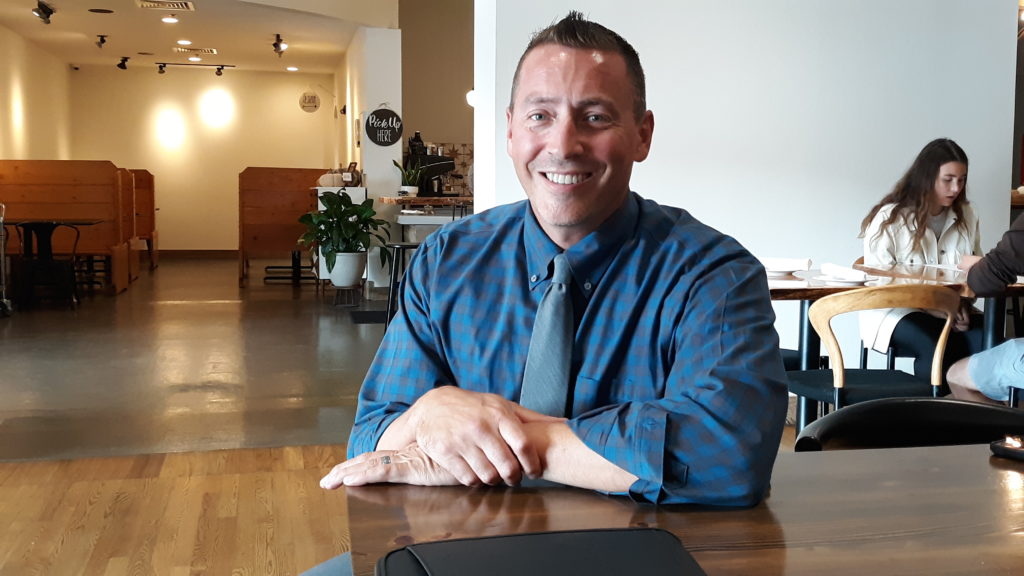
Ryan Myers, an incumbent on the school board and parent of two children in the Bowling Green school system, knew as a young boy that he wanted to be a teacher and coach.
He has spent 22 years working in education, beginning as a special education teacher. For the last 17 years he has worked in administration – currently at Penta Career Center.
He joined the board less than a year ago – at a time when the group faced difficult decisions.
Myers has shown an ability to work with people with different perspectives.
“I can collaborate. I can disagree respectfully,” he said.
School facilities
Myers serves as a board representative on the committee looking at school building deficiencies and possibilities. The group is made up of a diverse cross-section of the community, he said. To a great extent, his role is listening and learning.
“I want the direction to be made by them,” he said. “We’re kind of trying to heal the divide.”
The committee recently decided to not place a building issue on next spring’s ballot, but rather take more time on the issue.
“We have made strides. We all know something needs to be done with the older buildings,” he said.
The school board has taken steps to replace aging boilers and install air conditioning in the three schools without cooling systems.
“We are trying,” Myers said. “But we know they are Band-aids.”
“Overall, our buildings are in bad shape. I want to be a part of moving us along,” he said.
Learning during COVID
When Myers joined the board, his first meeting was in January – at a time when the Bowling Green district was the only in Wood County to not have some in-person classes.
Myers talked with principals and looked at other school districts that were meeting in-person, including his school, Penta Career Center.
“I knew it could be done. I wanted to be in session,” he said. In February, the board voted to go back to in-school classes in a hybrid form.
“We were the last one to come back,” he said.
Myers defended the mask mandate currently in place in the district.
“There were a lot of angry people,” about the mask requirement, he said. But he added, “I’m going to do everything I possibly can to keep kids in school. We have a lot of catching up to do.”
Gaps in education
Myers is very concerned about the drop in test scores after students spent almost a year learning online.
He has also talked about the number of kindergartners starting in the Bowling Green district, who come to school unprepared. More than half of those students start kindergarten below the expected learning levels.
That means a lot of catching up for elementary teachers.
“Our teachers do a yeoman’s job teaching kids,” he said.
And COVID has created even bigger learning gaps.
“Those gaps are so hard to close,” he said.
Turf controversy
Myers explained that the board did not prioritize turf over air conditioning in schools.
“This was not a ‘this or that,’” he said.
The air conditioning project was required to go out for bids, while the turf project was not, and could be acted on more quickly.
He also explained that turf was an equity issue, and turned the football field into a multi-use field for other sports as well.
But Myers said he recognizes why some in the district were angry about nearly $800,000 being spent on turf.
“I understand the optics of it,” he said.
Financial consultant
Myers was in the minority voting against the district contracting for another year with financial consultant David Conley. Myers wanted to pay Conley an hourly rate, rather than give him a year-long contract for $50,000, which was 25% more than the previous year.
“I was uncomfortable giving that contract out,” he said.
Teaching of race and racism
Myers opposes the two Ohio House bills under consideration that would limit how history and current events are taught in schools.
He believes that uncomfortable topics such as race and racism should “absolutely” be discussed in schools.
“We should be able to talk about those things,” he said.
“We’re not indoctrinating kids. Those are learning opportunities.”
Goals
Myers’ priorities are to close the gap on the learning loss during COVID, work on school facilities, and improve communication between the board and community.
“I want the community to know what we’re doing,” he said.
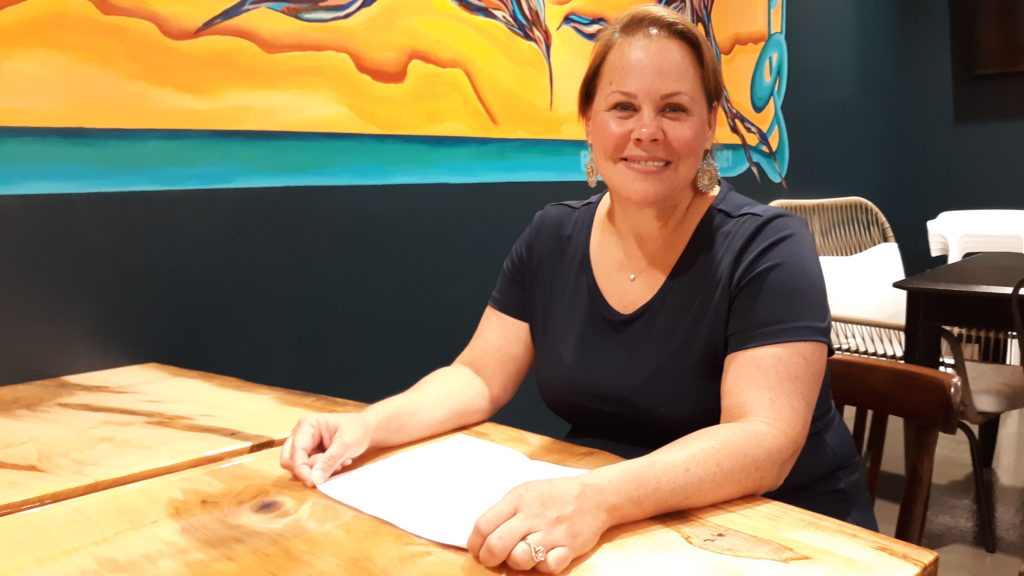
Jessica Swaisgood went from being a parent on the sidelines to an organizer in the spotlight during the last school year when she created the “BG Voice” organization to advocate for in-person learning during COVID. The group held rallies and posted signs, pushing for Bowling Green to return to the classrooms.
Swaisgood, a parent of two children in the district, is employed at a non-profit adoption and foster care agency, and previously worked in residential facilities for people with developmental disabilities.
“I’m a parent, not a politician,” she said. “I’m not an educator, and I don’t pretend to be.”
“I didn’t mean to start a movement,” she said. But the organization united other parents with shared concerns about online learning. “I had questions and I felt like I wasn’t getting answers.”
“We need change in leadership,” Swaisgood said.
Board shift
Swaisgood cites a need for a change in how the school board operates.
“I want to shift the focus to get back to the business of what a board is, what it’s supposed to do,” she said. “The board’s duty is to put accountability on the school’s leadership.”
Swaisgood has not tried to hide her dislike of the current school administration.
COVID
The district needs to be focused on getting kids caught up after COVID, she said.
“My purpose with BG Voice was to get kids back in school,” she said.
And if keeping kids in school means the mask mandate, then Swaisgood supports that.
“Regardless of how people feel about masks, we need to wear them to keep kids out of quarantine,” she said.
School facilities
Swaisgood isn’t sure of the solution to the district’s building issues – but she knows that the district needs to make a plan and move on it.
“I feel like the community has already spoken several times on the issue,” she said.
She questioned the “hand-picked committee” that is currently studying the building options.
“Why are we reinventing the wheel,” she said. “They can’t just keep doing this till they get the answers they need.”
Touchy turf issue
Swaisgood said the decision to put turf in at the football field suffered from poor timing.
“I understand the reasoning. I love sports,” she said.
But rather than putting in turf, “they should have been working on getting kids caught up in school,” she said.
She also questioned the openness of the board on the issue.
“I don’t feel that was handled with a lot of transparency,” she said.
Teaching of race and racism
At an earlier forum, the school board candidates were asked about bias in curriculum.
“As a Caucasion woman, this is difficult for me to answer,” she said about the existence of bias in curriculum.
“I do agree with people learning about empathy,” she said.
Critical Race Theory is intended for study in higher education. “That was never meant for an elementary classroom,” she said.
Swaisgood, who has spent decades advocating for people with developmental disabilities, said some children need more help than others.
Financial consultant
As for the hiring of financial consultant David Conley on a year-long contract, Swaisgood questioned why the district has to go outside for advice.
Hiring him on a per diem basis would have been better than “blindly paying him without results,” she said.
Swaisgood is also opposed to the district’s attempt to change a time-limited income tax to a continuing issue.
“You are talking about absolute power,” she said. “Why as voters would we ever embrace that? This school has never earned that.”
Goals
If elected, Swaisgood would like to see the board get “back to the basics” of education, community representation, and building up trust and credibility.
“They need to start following what’s in their own bylaws,” she said.
She wants leadership to be held accountable, and more transparency.
“We have to have more transparency on how things are handled. I feel like it continues to create a divide in the community,” she said.
Swaisgood also said she would like to see learning options for students whose parents don’t want them to wear masks.
“I would listen to the community and parents,” she said. “Parents have to have a choice for kids.”
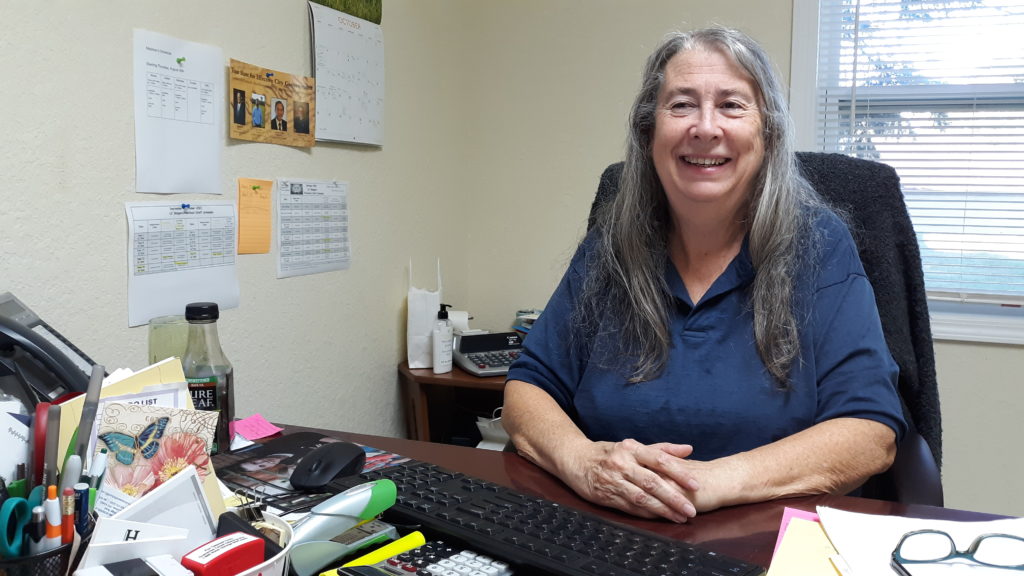
Peggy Thompson uses the mantra “Kids First” in her campaign. Thompson said that means the school district needs to do what’s best for children, not what’s convenient for the administration.
“I’ve got a heart for the kids. Not only my grandkids, but all kids,” she said.
If elected, she would work for more fiscal transparency, promote more volunteerism, and work to keep Critical Race Theory out of the schools.
“I want to be part of seeing our Bowling Green students get the best we have to offer,” Thompson said.
COVID precautions
Thompson is opposed to mandating masks in schools.
“I feel so bad for the kids,” she said. “I really think the parents are the best to know.”
As for those students who have underlying conditions that put them at risk, Thompson said “If they need to wear them, that’s fine.”
“I think we need to be a little more tolerant and not point fingers at someone doing something different,” she said.
Thompson is concerned about the lack of in-person classes last year.
“That’s going to stunt them,” she said of students. The district should have provided catch-up classes all last summer, she added.
The district should have looked at options such as offering in-person classes for the elementary students, and spreading them out using all the school buildings.
“Those kids need to have the interaction,” Thompson said.
School facilities
Thompson was not in favor of the district’s previous plan for one elementary school.
“I don’t think the consolidated school is a good idea for the younger kids,” she said.
And she questioned why she was not invited to be part of the newly-created school facilities committee.
“I was just a little curious why I wasn’t invited, since I’m running for school board.”
Thompson said at a candidate forum that the main problem with facilities has been the lack of maintenance on the school buildings.
“I was paying the bills and I could see we were not maintaining our buildings,” she said. “I was just paying bills. I didn’t have any power.”
Turf decision
Thompson would have voted against the new turf at the high school football field.
“It was not on the board agenda,” she said. “I was at that meeting.”
Financial consultant
Thompson would have also voted against hiring David Conley as the district financial consultant.
“Our treasurer should be able to handle one renewal issue,” she said.
Thompson opposes the district’s effort to turn its five-year income tax into a continuing levy.
“I’m a taxpayer. I’d like to have a little bit of say. It feels like they’re taking away my voice.”
Teaching race and racism
Thompson said she supports “teaching history as it occurred.” Anything else creates division, she said.
“I don’t want to limit what teachers can teach,” but she referred to the 1619 Project about slavery and racism as a “bunch of garbage.”
The school district needs to focus on the core education subjects of reading, writing, math and basic history, Thompson said.
“Teachers have to be very careful that they don’t impose their own beliefs,” she said.
Critical Race Theory – which is not taught in K-12 schools – addresses problems from 50 years ago, Thompson said. “Everyone’s worked so hard to be fair,” she said.
CRT is about “pigeonholing people, and telling people they are less equal or more equal,” Thompson said. Students should not feel divided by race or economics, she said, adding that they have all been declared equal by the Constitution and God.
“I would like to see us produce productive citizens,” she said. “They need to be educated with the truth.”
Goals
If elected, Thompson would like to see the school district promote Penta Career Center as a viable option for more students.
“We need to get past the stigma,” she said. “Not everyone needs to go to a four-year college.”
She would also like to promote volunteerism among students in the community, and among community members at school.
And she would like the district to do more nutrition education.
“Some of these kids are throwing away their whole meal” at lunchtime, she said. “No one is encouraging them to eat fruits and vegetables.”


